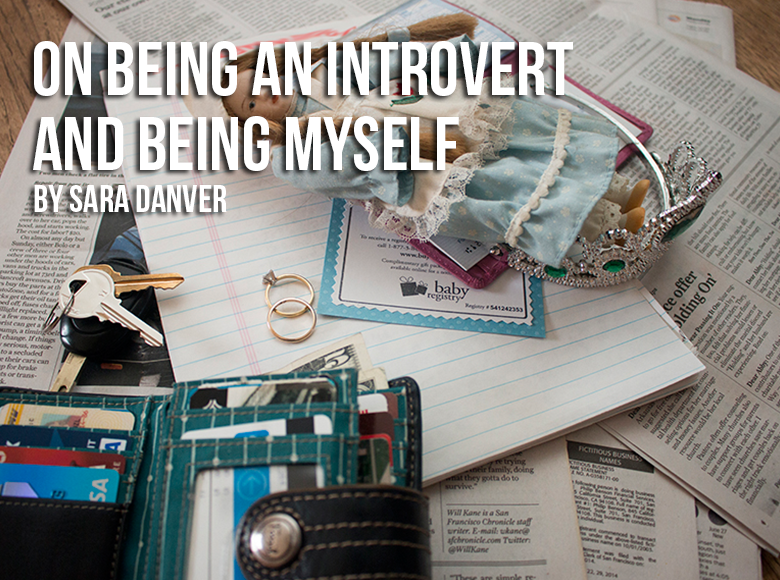I’ve always considered myself an introvert. My policy in new situations is to listen first, speak later once I’ve gotten the lay of the land. Most kids lie to their parents so that they can go hang out with their friends. But I would sometimes lie to my friends about what my parents said so I could stay home. I’ve been to restaurants and movies by myself. I’ve always loved being able to spend hours alone in the car. Whether it was reading, listening to music, cooking, watching movies or any number of other activities, I’ve always been quite happy doing things on my own.
It wasn’t until grad school that I realized what being an introvert actually means, and it took someone else to really point it out to me. Being an introvert doesn’t just mean that you’re okay or happy being by yourself. The difference between introverts and extroverts has more to do with where you get your energy, how you recharge after stressful situations, where you feel most revitalized. Being around people, even when it is amazing, fun, sparkling and shiny, drains my energy. If you consider yourself an extrovert, these situations probably give you energy, while being by yourself might drain it away.
I was lucky in college to find friends who seemed to understand this about me. We never really talked about it much, but the answer “no thanks, I think I’m going to stay in, make myself dinner and catch up on television” was always readily accepted. Deciding to go out was always met with a certain degree of surprise. My friends were simply happy to have me along when I wanted to go, and not inclined to pressure me when I wanted to go my own way and do my own thing instead.
Even then, I still didn’t quite understand what being an introvert met. I understood doing what I wanted—not forcing myself to go places I didn’t want to go or talk to people I didn’t want to talk to. Part of moving from adolescence to adulthood, I think, is learning the difference between want and should want. In college, I learned that what I wanted most was decisiveness and freedom—the ability to decide what I wanted and the freedom to take it, whether it was curling up in bed with tea and a good book, or going to a bar with my friends and drinking one too many vodka cranberries and doing high kicks across the bridge on the way home.
So, by now, I was solidly aware of my enjoyment of alone time, but I didn’t figure out the energy thing until grad school. My college friends were few but tight-knit, so it was pretty easy to block out some quiet nights with frozen pizza, fruit, and some good television, or to indulge by heading out to a party just because we wanted to. But in grad school, I made lots and lots of close friends—we quickly became a big, amorphous group, loud and rambunctious and high-spirited. We rode that high for the first few weeks of school, and I loved it. But I could never quite figure out why I was so exhausted. I was worried about being irritable, and I was worried about missing out.
The first time I said no was a revelation. I stayed home. I watched some television. I didn’t spend any money on alcohol. I went to bed early. I felt a million times better the next day. It took another few missed outings, a few more negative responses to text messages before I really figured it out. I was telling this story to a friend of mine, and it was her response that made it all click.
“Well, yeah,” she said. “Being alone is how you rest.”
I love my friends. I love parties and I love going out and I love dinners together. I love meeting up for coffee, and studying with people in the library. But I also love quiet nights by myself. And more importantly, I need them—they are how I build up stores of energy so that I can really enjoy social engagements later. Being by myself is how I stay myself. It makes me happy. And now, I don’t even remember those things to which I originally said no. Missing out on a few social outings hasn’t changed my relationship with my friends or affected my position in the group.
It’s all part and parcel of the same lesson—knowing yourself, being honest about what you know and need, and making sure you get it. It’s been a process for me. I had to start by learning what I want and learning to separate that from what I thought I should want. And then it was important to learn why I wanted it, so I could keep an eye out for those situations in the future.
Wherever you’re most yourself, however you’re getting what you need to be your best, most invigorated self, is an okay place to be.

Photo by Andy Sutterfield